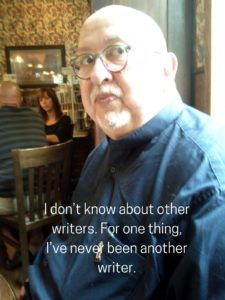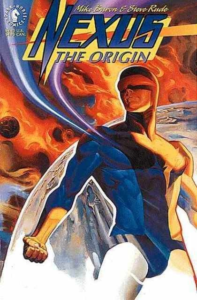 Whenever I ask the question “How shall I live?” I always look to literature for the answer. But this time the answer came in a dream.
Whenever I ask the question “How shall I live?” I always look to literature for the answer. But this time the answer came in a dream.
The dream took place in an auditorium, an old one, like the Century movie theaters in San José: a huge domed room, with plush maroon carpet that matched the seats. Some of the seats held members of my writing group. We were there because our fellow member Anthony Francis was going to read an excerpt from his novel, and I was supposed to introduce him.
I was standing on a wooden stage, behind a podium. This was a writing conference, titled The Real Life of Fiction.
I had notes, but they didn’t help. I babbled. I forgot the title of the novel. I forgot the name of the conference. At one point, through the haze of my stammering incompetence, I saw clearly for a moment: in the front row, a woman with the curly hair and Coke-bottle glasses that could only belong to one of my favorite authors: Oh no, I thought, not only am I messing up, but Connie Willis is seeing it.

The microphone was from the 1930s. Its metallic workings distorted my voice. The audience stared at me. Connie Willis’s glasses stared at me. I kept talking, even though I had forgotten the name of the conference and the title of the novel. Then I remembered to say that Anthony writes like the cinema.
I tried to explain what that meant, and my words made no sense. But I realized that since Anthony was about to read from his novel, I didn’t have to explain. I said, “You’ll see in a minute anyway. I don’t have to tell you.” I stepped down as Anthony stood up. I walked toward the seats as he made his way to the podium, a twin copy of the novel in his hand. He smiled and thanked me as we passed.
I’d done a terrible job, but I was happy, because it was the best I could do.
I’d babbled and stammered, but I’d said what mattered: that the conference was important, and that Anthony writes like the cinema. And that we work together in our writing group. After I sat down, I remembered I was supposed to have said more about the writing group, that someone had told me I should use this opportunity to advertise it. Oh well, I thought, next time.
What is “the real life of fiction”? Here is my answer: I am not content to read fiction or even to write it. I will not be satisfied unless I live it. I want my life to be a story, which means I have to transcend myself and do what matters in the critical moment.
But there is no shortcut, and sometimes you can’t do what maybe you should do, or what you see other people can do. At my writing group, I see Betsy just do things she thinks might work, like run a crowdfunding campaign; I see David just write novel after novel as though he has every right to do it. I even see myself posting videos that I hope no one will watch, but that a year ago I wouldn’t have even dared to record. Sometimes your skills aren’t where you wish they were, sometimes you don’t know the story you’re living, but that is not an excuse to avoid action.
You have to do what you can, because that is the only way ever to be able to do something that matters. The videos I make next year will be better, but only if I make these videos now.
There is a connection here to literature, to mythology, to Orpheus and Odysseus and Leopold Bloom, because we are all just trying to do something that matters, and we can’t do it most of the time. But still, sometimes we can, and that’s the part that all the other times are for. That’s the part that makes our life a story.
What is the real life of fiction? It’s the real life of the times when we can. It’s the times when we can’t, all condensed into a single scene; it’s the maroon carpet seats in the dome theater and the echo of an old microphone. It’s everything you do so that you can do the one thing that matters; it’s the one thing shining and then passing away.
Do what you can, and do it now. The real life of fiction is the real life of real life.
“”An essay from Your Writing Matters: 34 Quick Essays to Get Unstuck and Stay Inspired by Keiko O’Leary
About the Author

If you’re an author or other fantasy and science fiction creative, and want to do a guest blog post, please check out the guest blog post guidelines. Or if you’re looking for community from other F&SF writers, sign up for the Rambo Academy for Wayward Writers Critclub!





 I don’t know about other writers. For one thing, I’ve never been another writer. For another, although I’ve observed practically all the interviews, or as in this case requested from writers, are about how the writing is done, creative tricks, recipes and such. I can’t listen to, view, or read that stuff…not that it isn’t full of useful information, just that my attention wanders, or I fall asleep. So, the nice guy who works for the publisher and arranges this kind of thing told me it would be a good idea if I wrote something about writing. And I just told you that I really don’t know anything about how other writers do it.
I don’t know about other writers. For one thing, I’ve never been another writer. For another, although I’ve observed practically all the interviews, or as in this case requested from writers, are about how the writing is done, creative tricks, recipes and such. I can’t listen to, view, or read that stuff…not that it isn’t full of useful information, just that my attention wanders, or I fall asleep. So, the nice guy who works for the publisher and arranges this kind of thing told me it would be a good idea if I wrote something about writing. And I just told you that I really don’t know anything about how other writers do it.
